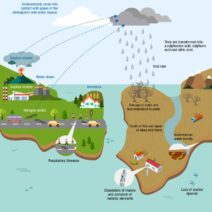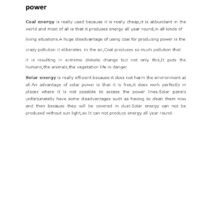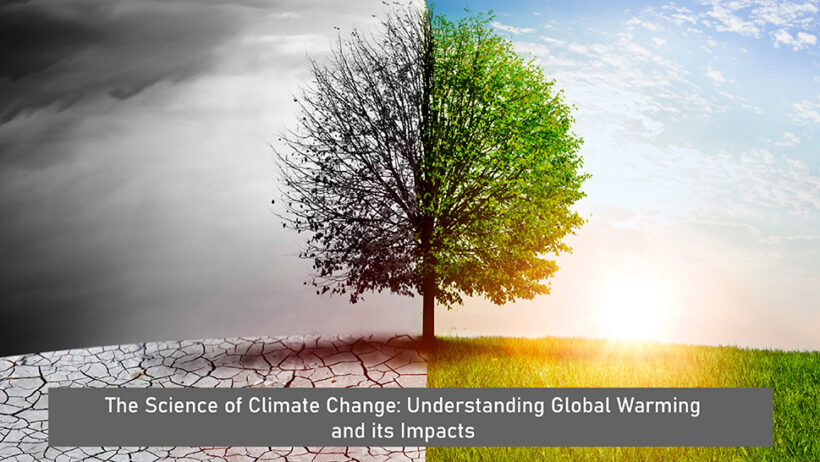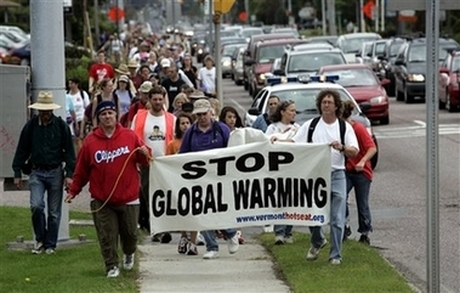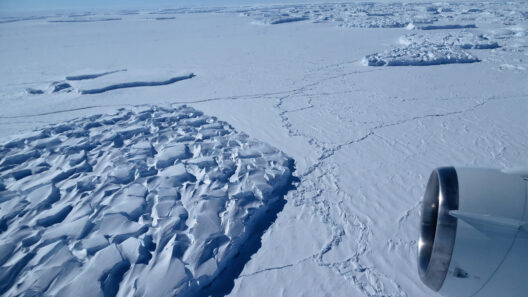Global warming has become an omnipresent specter, haunting our discourse on environmental conservation. At its core, it represents the inexorable rise in Earth’s average surface temperature, primarily driven by the accumulation of greenhouse gases (GHGs) in the atmosphere. This conundrum does not merely pertain to an increase in temperature; rather, it heralds profound systemic impacts that ripple through our ecosystems, economies, and societies. Throughout this discussion, we shall explore the multifaceted ramifications of global warming, delving into a myriad of interconnected domains that illuminate the depth of its influence.
To commence, it is imperative to recognize the anthropogenic sources of greenhouse gases. Industries, agriculture, and transportation are principal contributors. The combustion of fossil fuels releases copious amounts of carbon dioxide and methane, further exacerbating the greenhouse effect. These emissions encapsulate heat, thus creating a climatic feedback loop that fosters additional warming. One might contemplate: Why does this phenomenon captivate the attention of scientists, policymakers, and the public alike? The answer lies within its profound implications for our planetary integrity.
As global temperatures rise, the characteristics of our weather patterns alter dramatically. Extreme weather events, such as hurricanes, droughts, and flooding, become more frequent and intense. The haunting specter of climate-related disasters imposes a heavy burden on vulnerable populations. Risk mitigation frameworks necessitate re-evaluation, taking into account the systemic shifts induced by warming. Regions previously deemed safe from natural catastrophes are now experiencing unprecedented climatic volatility. An examination of the socio-economic impacts reveals a precarious nexus wherein those with the least resources endure the most dire consequences.
Shifting our focus to the intricacies of Earth’s biosphere, we discover that global warming incites systemic upheavals in biodiversity. Habitats face degradation due to temperature fluctuations, altered precipitation patterns, and rising sea levels. Species that once thrived in specific ecological niches find themselves displaced, unable to adapt swiftly enough to the rapid pace of change. As a result, many face extinction, igniting concerns over the integrity of ecosystems that provide essential services to humanity, such as pollination and water purification. The loss of biodiversity poses a formidable threat, undermining the resilience of natural systems and diminishing the resources vital for human survival.
Coral reefs, often referred to as the “rainforests of the sea,” epitomize the nexus between global warming and its ecological impacts. Rising ocean temperatures and acidification due to absorbed carbon dioxide orchestrate a mass bleaching phenomenon, jeopardizing these diverse marine ecosystems. The ramifications extend beyond mere aesthetic degradation; entire fisheries depend on the health of coral reefs. The disappearance of such critical habitats will drive a wedge between sustenance and survival for many coastal communities, revealing the interconnectedness of climate change and socioeconomic stability.
In addition to environmental impacts, global warming engenders significant economic consequences. Agricultural systems exhibit heightened vulnerability to climatic fluctuations. The interdependence of crops and climate has never been more salient. Yield variances induced by erratic weather patterns and water scarcity threaten food security. Moreover, the financial burdens associated with disaster recovery precipitate economic instability, disproportionately impacting low-income households and exacerbating existing inequalities. Farmer resilience strategies necessitate adaptive agricultural practices that embrace sustainability, necessitating education and access to technological innovations that can bolster yields in the face of adversity.
On a global scale, nations grapple with the logistics of climate adaptation and mitigation. International treaties and commitments, such as the Paris Agreement, serve as frameworks for global cooperation, yet the path toward equitable solutions remains fraught with obstacles. Countries with historically high emissions confront challenges as they balance economic growth with environmental stewardship. Conversely, developing nations, which generally contribute minimal emissions, often serve as the frontline battlegrounds for climate change’s dire impacts. This dichotomy exposes the ethical and moral imperatives of climate action—addressing the disproportionate burden borne by those who have contributed the least to the crisis.
In the arena of public health, the insidious effects of global warming reveal yet another layer of complexity. Rising temperatures and altered precipitation patterns foster conditions conducive to vector-borne diseases. As mosquitoes expand their range, diseases such as malaria and dengue infiltrate new territories, endangering populations unaccustomed to such public health threats. Furthermore, extreme heatwaves exacerbate pre-existing health conditions, straining healthcare systems already under duress. Research-focused public health strategies must adapt to anticipate and mitigate these emerging health crises, underscoring the importance of intersectional approaches in addressing the complexities wrought by climate change.
Public awareness and collective action constitute pivotal components in addressing global warming. Grassroots movements and environmental activism galvanize communities, promoting sustainable practices and climate literacy. Educational initiatives foster a greater understanding of the interplay between human activities and climate change, empowering individuals to make informed choices. Each effort, big or small, contributes to a growing momentum for change, provoking dialogues that hold decision-makers accountable. The urgency of the matter compels individuals to engage in environmental stewardship, advocating for systemic reforms that prioritize sustainability over short-term gains.
In conclusion, the phenomenon of global warming transcends mere temperature rise; it encapsulates a myriad of systemic impacts reverberating through every facet of our existence. The urgency to confront this crisis is indisputable, as the ramifications extend beyond environmental degradation to touch upon economic, social, and health-related domains. Understanding the interconnectedness of these elements fosters a holistic approach to climate action, empowering us to safeguard the future of our planet. Time is an ally we cannot afford to squander; the planet’s pulse grows faint, and the time for profound change is now.
